After almost four years of service with this refrigerant, I just added a half a can of this air duster refrigerant to my old truck's system. It's still the coldest AC system in the entire family "fleet".
Here's the background info that I posted about 4 years ago.
This is my old '88 Mazda B2600 4x4 with the 2.6L Mitsubishi carbureted engine. I converted it to a Weber several years ago and really want to get this back on the road as an everyday driver. To do that I had to fix the AC system. The original R12 charge had leaked out years ago due to a faulty Schrader valve, and since R12 is so hard to come by these days, and R134a is not compatible with the old mineral oil based R12 systems, I decided to try the following --- Electronic Keyboard Duster!!
That's right -- the electronic keboard duster kits are nothing more than a refrigerant -- namely difluoroethane; which is R152A -- it's cheap enough at Wallmart $11 for three 10oz cans. That's quite a savings over the cost of R12. BUT what's even better is that the R152A has most all of the heat transfer and compression characteristics of old R12.
First thing to do is purchase a side-tap can dispenser because the Duster cans don't have a standard R12 or R134a Schrader fitting. Also, you must tap these cans at the strongest point -- about 1/2" up from the bottom, or you'll crush the can and get a massive leak. Be gentle when tapping and don't force it.
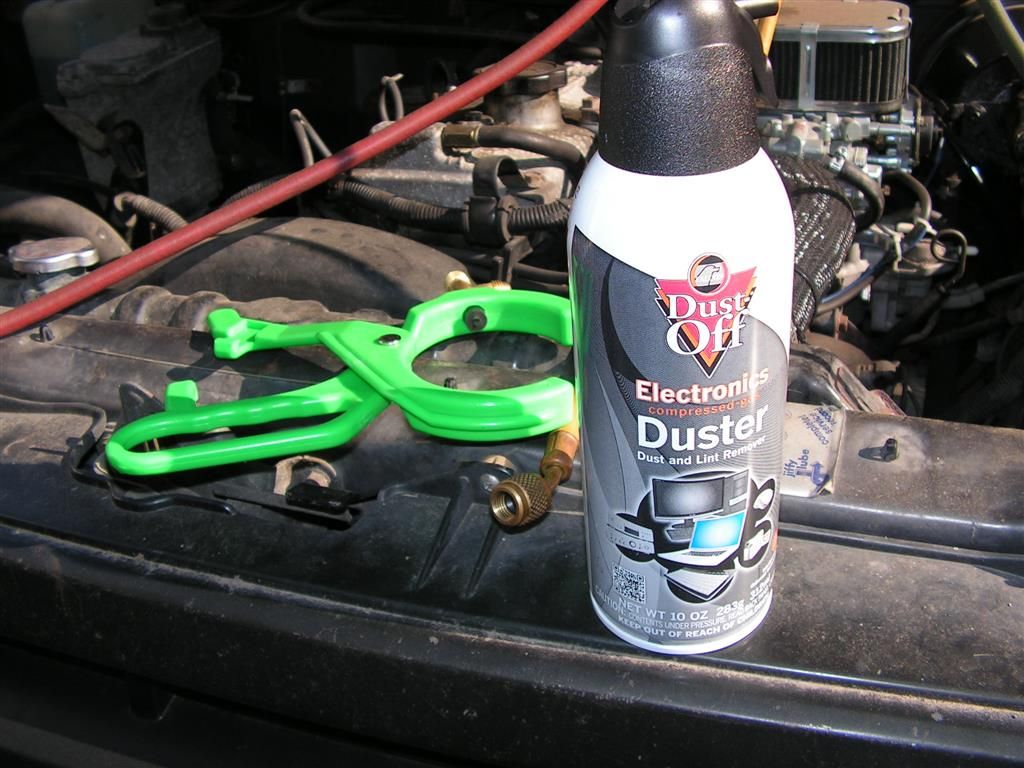
You will also need an R12 gauge set -- or a modern set that read multiple refrigerant types. I attached my set as usual -- low side on the compressor -- high side by the receiver/dryer. Then I replaced the faulty Schrader valve on the low side and pulled a vacuum for an hour.
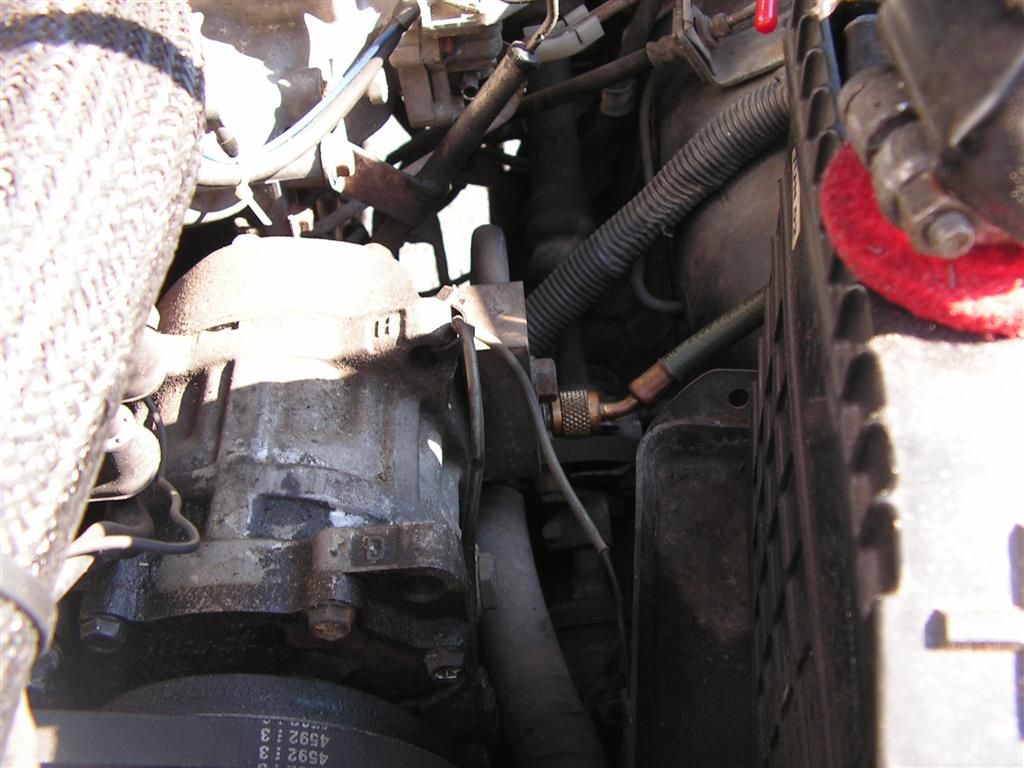
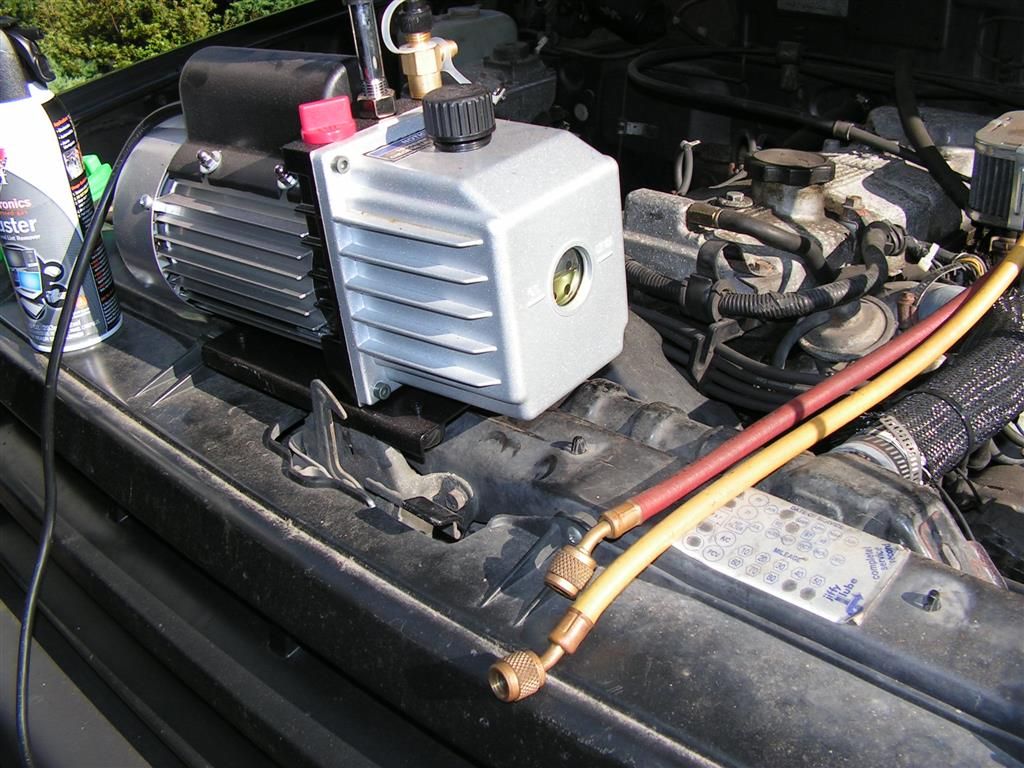
After the vacuum, the system held 30 inHG vacuum for 1 hour and I was pretty confident that it was air tight.
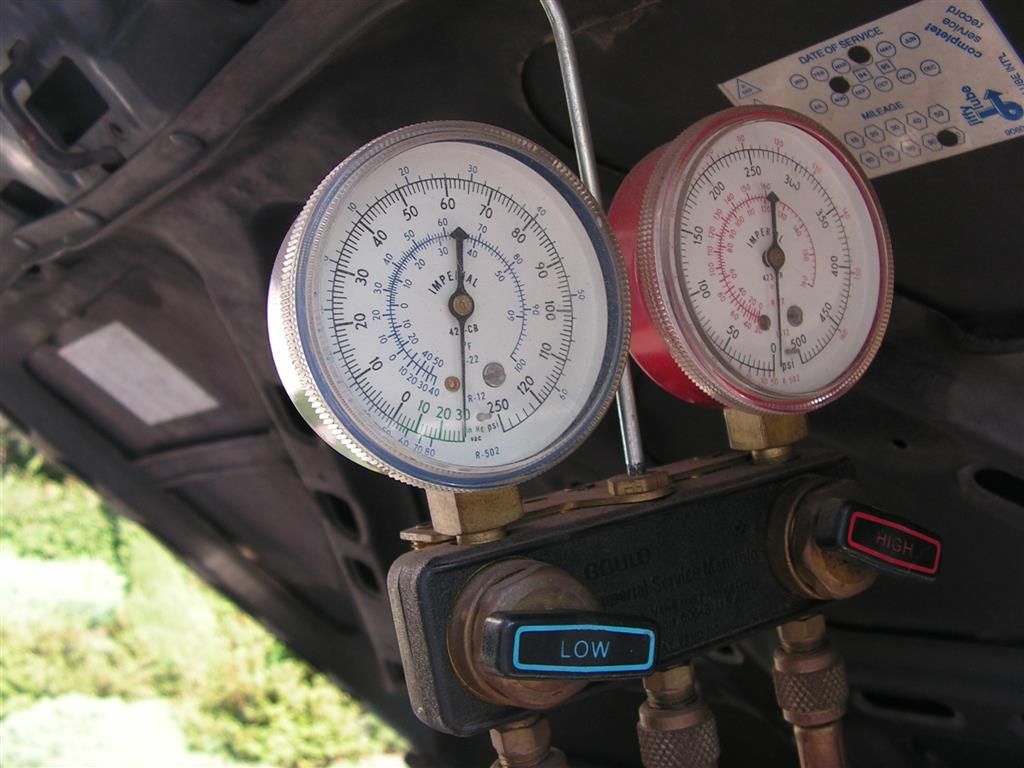
I then tapped my can and proceeded to fill the system with the 152a air duster refrigerant. First without the engine running, and then after the system equalized a bit, I turned the AC on high and recirculation on internal (no external air flow). I put a thermometer in the vent and proceeded to turn on the AC switch. The compressor instantly kicked in and the pressure dropped to 22psi on the low side. I opened up the gauge and added the 152A slowly to increase pressure 10psi at a clip and then shut the gauge valve off to let high side pressure stabilize and to check internal temps.
I did this procedure about three/four times until the low side had stabilized on 42-45 psi and the high side at 200-235 psi. I used about 1.5 cans -- or about 1lb of refrigerant to get the inside temp down to about 54F. Then I revved the engine for a few minutes and the gauge dropped just below 50F. I thought that was enough and unhooked all my gauges and took the car for a spin around the block. Within minutes the temp was in the 44-46F range -- PERFECT!!
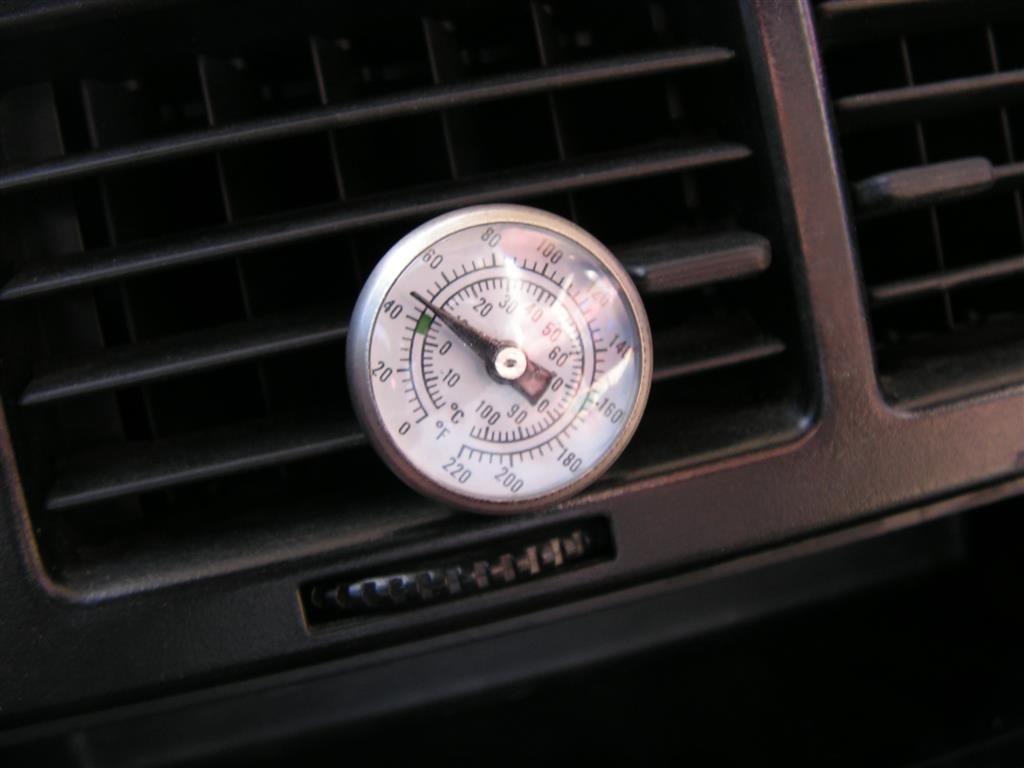
At this point I would have to say that we have a success, BUT only time will tell. I'm not recommending anyone to do this to their car. This is an experiment to see what works and what pressures are viable for this type of refrigerant. One thing is for sure, it definitely does not behave exactly the same (pressure and volume wise) as standard R12. My system required less R152a than R12 -- I filled the original Mazda system back in the day with 20-22oz of R12 (a bit less than 1.5lbs.). This 152A takes less -- about four-six ounces less.
Let's wait and see what the long term implications are in this experiment -- I'll keep you posted.
BTW -- I'll debunk the myth right off the bat. This stuff is NOT flammable to any high degree. I tried spraying it across an open propane torch flame and it did not ignite -- in fact it extinguished my propane flame every time I tried to do this experiment. That doesn't mean it will never flame -- but it doesn't seem to be explosive.
Addendum -- Here is a Korean Advanced Institute of Science and Technology report about the efficacy of using R152a as an automotive refrigerant. Very interesting conclusions.
http://www.sae.org/events/aars/presentations/2008/manhoekim.pdf